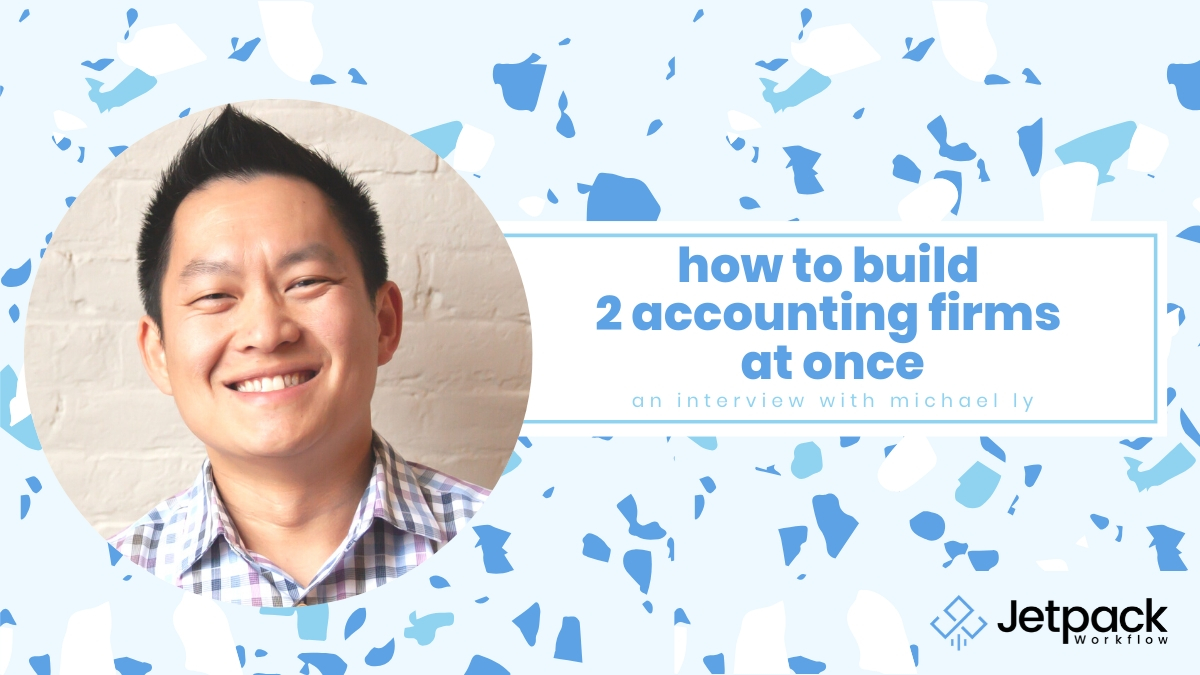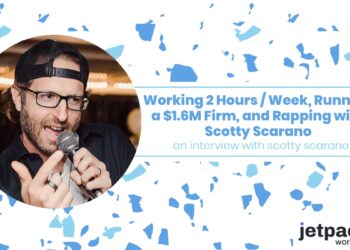How To Build 2 Accounting Firms At Once

Michael Ly, founder of Burlington CFO and Reconciled It, knows the secrets to growing fast and building multiple accounting companies. After just a couple years of starting his CFO consulting practice, he swiftly opened his bookkeeping firm.
What he found out after working with his initial client base was they struggled with hiring and maintaining quality bookkeepers. Rather than simply referring out the new bookkeeping work, Michael built a separate company to meet this need and grow his brand.
In this episode of Grow Your Firm Podcast, David Cristello and Michael Ly uncovers:
- Steps to networking for your first clients when starting your firm
- How he built a second company after just starting his first
- Empowering your team in order to grow faster
ADDITIONAL LINKS
- Burlington CFO
- Reconciled It
- Implement Value Pricing – Ron Baker Interview
- Turn Networking into New Clients – David Fisher Interview
Starting his CFO practice:
A son of Cambodian refugees, Michael Ly knows what it means to forge your own path. He spent many years, after graduating from Arizona State, working in various Controller and CFO roles including with Top 10 Firm Eide Bailly. In 2011, he moved across the US to Vermont.
A few short months later he opened the door to his CFO consulting practice, Burlington CFO. His firm advises CEOs and business owners on their financial business decisions and serve as an interim CFO. Most clients fall under the $3MM revenue and less than 40 employees umbrella.
Finding his first clients:
Moving across the country typically means a clean slate. Michael needed to grow his client base. His first strategic move was to look for networking events.
He googled various Chamber of Commerce events, startup events, and local groups. There, he went to learn about the area, the best places to meet others and grow a company.
Michael’s Strategy:
At an event, Michael’s plan was simple. Morph into a sponge and simply learn about the various companies. It’s a mindset.
He introduces himself very briefly and immediately starts asking questions about the person’s business. Especially with business owners, they pitch themselves and their business all the time, but often don’t feel “heard.” Michael built up a reputation for asking about their business but then also listening and responding. Keep the conversation focused on the other person.
The more he did this, the more he built trust.
“The person who listens controls the sale.” – Michael Ly
Frame your questions based on how they run their business and what’s their strategy. Let them brag a bit about successes.
To keep the conversation flowing, make sure you have follow-up questions in your back-pocket:
- “What inspires you?”
- “What stage of the business are you in?”
- “What are you frustrated with right now?”
- “What challenges do you regularly see in the industry?”
Sales people tend to talk so much about the product they sell and try to fit it into the lives of whoever they speak with. This is backwards.
Michael took the opposite approach. After awhile, his contacts began to trust him and introduced him to their contacts.
After digging into their challenges and realizing their problems, at some point, they would ask Michael what he did. Immediately, he could re-frame his skills to what their problems were. In no time, he was signing clients using this one approach.
Building up his practice:
Michael started off with hourly rates. He needed to start charging and, like a true entrepreneur, figured it out as he went along. Charging hourly allowed him to get his feet wet.
As he got better at what he did, he slowly crept up the price.
“Until you are being told ‘No’ for your prices, you are leaving money on the table” – Michael Ly
Soon after, Michael started dabbling in Value Pricing. He created a hybrid model where clients could buy “batches” of his time i.e. prepaid time. It was “use it or lose it” and if they accepted, they paid and received a discount upfront.
DAVID’S TIP: Find ways to predictability in your business. It makes life less stressful.
A new venture:
While consulting with clients, Michael found a major need. His client’s hired bookkeepers who proved to be inconsistent and stressful. Michael knew a great bookkeeper was paramount to smooth financial decisions.
A client asked if Michael could hire and vet his own bookkeeping team to relieve this pain point. What first seemed like a wild idea turned into a new company! Reconciled It launched in early 2015. Michael started it cheap, building the site on Weebly and finding his first trained bookkeepers.
This proven valuable to Michael’s CFO practice as he knew the client’s books were up to par and it made his job easier in making correct financial decisions.
Customers would essentially land on Burlington’s site, then click over to Reconciled It. ‘
An innovative way to introduce clients proved to be holding a 14 day Free Trial. Normally, you’d see trial runs with software products, but not with a service like bookkeeping.
“How can you afford to work for free?”
Michael knows there are always slacks in realization with bookkeepers. All the trials do is fill up that blank space.
It paid off.
Free trial to new client conversion is close to 100%! Unheard of with free trial offerings.
DAVID’S TIP: If you’re already spending money on marketing i.e. radio ads, print ads, etc. having a Free Trial is just another tool in your belt for marketing.
Starting your own company (or companies…?)
Michael believes if you are going to start a firm or open a new branch of your parent company, the leaders must be entrepreneurs. There are just too many decisions and risks to make and take that only an entrepreneur would face them correctly. It takes some guts and determination.
Also, know your numbers. Understand the Lifetime Value of a Client (LTV) and plan accordingly with finances.
In terms of building your team, at some point, you need to empower them with your clients. You cannot be present 24/7 as you look to grow. With his bookkeepers, Michael has one tag along to new client meetings so the bookkeeper knows from Day 1 what needs to be done.
For your clients, you must show your team and your clients your service offerings. Your prospects may not know everything they need and they certainly don’t understand all your offerings. You must Listen, then Understand, then Provide the Solution. Offer all services you believe the client might benefit from.
Michael’s built two impressive companies and in a short time-frame. He found a need within his own client-base, he was able to spin into another profitable machine. Sit down with your clients, listen, and dig into their challenges. There might be some hidden profit centers you didn’t know.
Related Articles:





